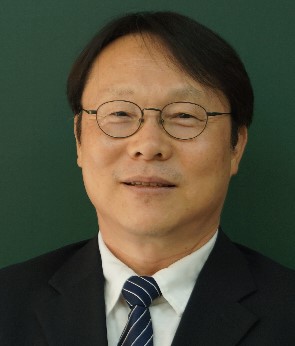people
Professor Jeong-Guon Ih of the Mechanical Engineering Department at KAIST has been re-elected as the Vice President of the International Commission for Acoustics (ICA). His second term of office is from October 16, 2016 to September 30, 2019.
Professor Ih, the first Korean who was selected to a senior position on the ICA management board, took over his current post in 2015 when the vice president at the time passed away in the middle of his term.
During his stint, Professor Ih played a key role in planning the ICA’s triennial gathering, the International Congress on Acoustics, in Gyeongju, Korea, scheduled for October 24-28, 2022. He will also serve as the general chair for the conference.
The International Congress on Acoustics is the largest professional meeting in the field of acoustics. It provides a venue to meet, discuss, and exchange ideas covering all aspects of acoustics including an extensive technical exhibition that highlights the latest advances in acoustical products such as materials, systems, and equipment.
Acoustics has grown to become an important element in the Information Age in the areas of automation, machine learning, and virtual reality. Hosting the Congress will support Korea’s goal to lead acoustic research and development on the global stage.
Professor Ih said, “Serving international academic organizations offers great opportunities to learn global trends and to collaborate with various research institutions, universities, and industries worldwide. I hope my service will inspire many young Korean researchers to pursue their careers in this field.”
Professor Ih is also a member of eight eminent international academic societies such as the Audio Engineering Society, the International Congress on Ultrasonics, and the International Institute of Noise Control Engineering.
The ICA was founded in 1951 as a subcommittee of the International Union of Pure and Applied Physics (IUPAP), and it consists of 46 member states and four observer nations. It promotes international development and collaboration in all fields of acoustics including research, development, education, and standardization.

-
research KAIST's Li-Fi - Achieves 100 Times Faster Speed and Enhanced Security of Wi-Fi
- KAIST-KRISS Develop 'On-Device Encryption Optical Transmitter' Based on Eco-Friendly Quantum Dots - New Li-Fi Platform Technology Achieves High Performance with 17.4% Device Efficiency and 29,000 nit Brightness, Simultaneously Improving Transmission Speed and Security - Presents New Methodology for High-Speed and Encrypted Communication Through Single-Device-Based Dual-Channel Optical Modulation < Photo 1. (Front row from left) Seungmin Shin, First Author; Professor Himchan Cho; (Bac
2025-06-24 -
people Distinguished Professor Sang Yup Lee Wins 2025 Global Metabolic Engineering Award
< Distinguished Professor Sang Yup Lee (Senior Vice President for Research) from the Department of Chemical & Biomolecular Engineering > KAIST announced on the 20th that Professor Sang Yup Lee, who serves as the Vice President for Research and a Distinguished Professor at our university, has been awarded the '2025 Gregory N. Stephanopoulos Award for Metabolic Engineering' by the International Metabolic Engineering Society (IMES). Professor Lee delivered his award lecture at the 16
2025-06-20 -
research KAIST Develops Glare-Free, Heat-Blocking 'Smart Window'... Applicable to Buildings and Vehicles
• Professor Hong Chul Moon of the Department of Chemical and Biomolecular Engineering develops RECM, a next-generation smart window technology, expecting cooling energy savings and effective indoor thermal management. • When using the developed RECM, a significantly superior temperature reduction effect is observed compared to conventional windows. • With a 'pedestrian-friendly smart window' design that eliminates glare by suppressing external reflections, it is expected to be a
2025-06-20 -
research Simultaneous Analysis of 21 Chemical Reactions... AI to Transform New Drug Development
< Photo 1. (From left) Professor Hyunwoo Kim and students Donghun Kim and Gyeongseon Choi in the Integrated M.S./Ph.D. program of the Department of Chemistry > Thalidomide, a drug once used to alleviate morning sickness in pregnant women, exhibits distinct properties due to its optical isomers* in the body: one isomer has a sedative effect, while the other causes severe side effects like birth defects. As this example illustrates, precise organic synthesis techniques, which selectivel
2025-06-16 -
event KAIST Holds a Ceremony to Declare their Renewed Commitment for Ethical Management
KAIST held a ceremony to declare their renewed "Commitment for Ethical Management" to raise awareness and solidify the commitment its members to faithfully fulfill ethical responsibilities and duties. Last March, the university established the 'Special Committee for Ethical Management,' chaired by the Provost, and under the leadership of this committee, a new 'Code of Ethics' and 'Code of Conduct' were prepared, containing ethical standards that members must adhere to across all areas of educ
2025-06-16